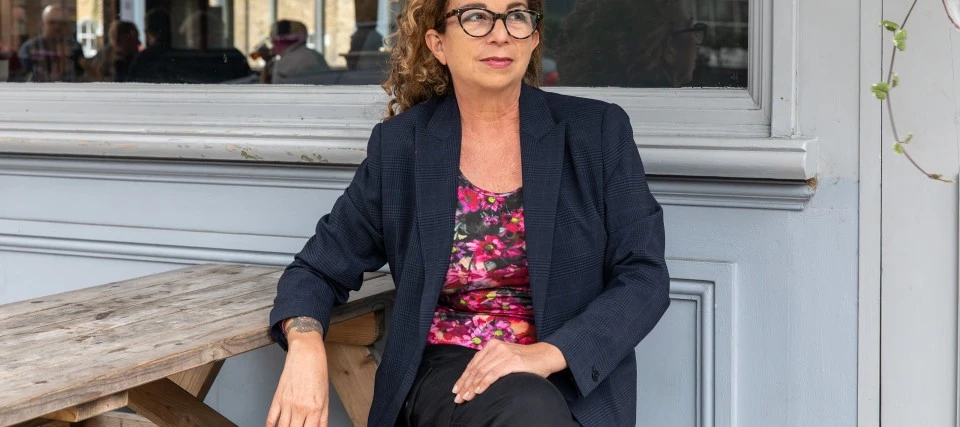Featured image: Manchester Met
The first words Monique Roffey, esteemed writer and activist, said to me were: “Is that a Trini accent I’m hearing?” To which I eagerly reply, “Yes!”
For as long as she can remember Professor Roffey, like myself, has travelled frequently between Trinidad and the UK.
The Trinidadian-born British writer’s novels are critically acclaimed and she has received multiple accolades since she began writing ten years ago, including the OCM Bocas Prize for Caribbean Literature.
Currently a Professor of Contemporary Literature at Manchester Metropolitan University, Roffey tells me, “You’re the first Trinidadian I’ve ever come across at the university”. She describes her time at Manchester Met: “I’ve loved working at the Writing School from the minute I started writing here”. During her time working at the university, Monique has released three novels including her award-winning novel, Mermaid of the Black Conch.
Monique explains that her time at Manchester Met has been an “amazing journey” with interesting work, surrounded by unique opportunities and diverse individuals. She says, “It’s a great place to be teaching.” Monique describes her appreciation for the support she received during her MA and Ph.D. in Creative Writing in England: “I’ve received so much mentoring and support here, which has allowed me to develop a long-lasting career based here. That’s what being in the diaspora can do”.
Monique explains her fascination with her West Indian roots: “I find that Trinidad is so much richer than the UK in terms of its complexity and history and it’s hard for me to look away.” She describes Trinidad, where her family has been since the 50s, as a “melting pot” of cultures.
According to American sociologist Nancy Foner, when West Indians move abroad they begin to see themselves differently; that is how the West Indian identity is found in the diaspora.
She reveals that the author that resonates with her the most is British novelist Jean Rhys: “She speaks to European people like me and my family who came to the region and became part of the diaspora.” The works of Rhys have heavily influenced Monique’s writing, which too draws inspiration from the traumatic Caribbean landscapes.
Monique’s new novel, Passiontide is set on a Caribbean island like Trinidad. The book highlights the lasting impact of colonialism on the West Indies, as corruption is embedded within our societies and crime and murder rates are rising. The story is based on true events that took place in the calm after Carnival Monday and Tuesday. On Ash Wednesday, a woman is found murdered which sparks a revolution. The women of the island dare to imagine a different world.
For Monique, everything leads back to her West Indian roots. She became involved in climate activism because of her brother in Trinidad. She explains, “The way it all started was an extreme weather event in Trinidad which flooded my brother’s house. The shock of it caused knock-on effects.” The climate issues that affect the Caribbean and Monique’s family led to her involvement in climate activism connecting to the diaspora.
This event triggered an autoimmune illness for Monique’s brother, causing their family to suffer. Monique wrote her novel Archipelago in the wake of what happened to her brother. The novel highlights the ongoing crisis faced in the Caribbean of rising sea levels, pollution, and coral reefs being destroyed.
As research for her novel, Monique embarked on a journey throughout the Caribbean and parts of Latin America to gather information on the environmental impacts of tourism. This was at the same time that Extinction Rebellion appeared in Oxford Circus. Monique wanted to join the movement, asking, “What can writers do?” She says, “A handful of us set up what is now called Writers Rebel that was it. We became a chapter of Extinction Rebellion, and we became a platform where writers could join the movement.”
Rather than recollecting the traumatic landscapes of the Caribbean, Monique employs the ‘Green Writing’ approach. ‘Green Writing’ is writing that entertains and informs about ecological understandings and inspires solutions and behaviours towards a sustainable future. Monique is a passionate environmental activist and is dedicated to challenging the ongoing climate crisis. She recently co-launched an elective in Green Writing at Manchester Met. This unit will explore how creative writers can engage with ecological emergency during a time of crisis and demonstrate ways to respond creatively to contemporary climate science.
Monique Roffey’s new novel Passiontide will be available from June 27th.






Leave a reply